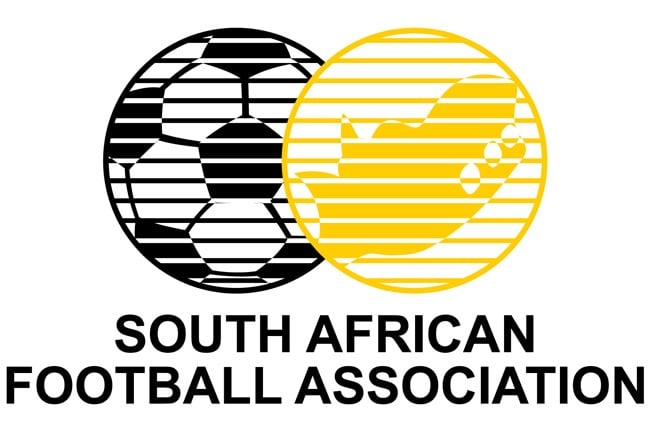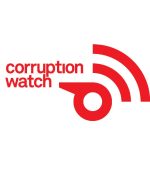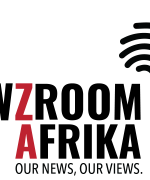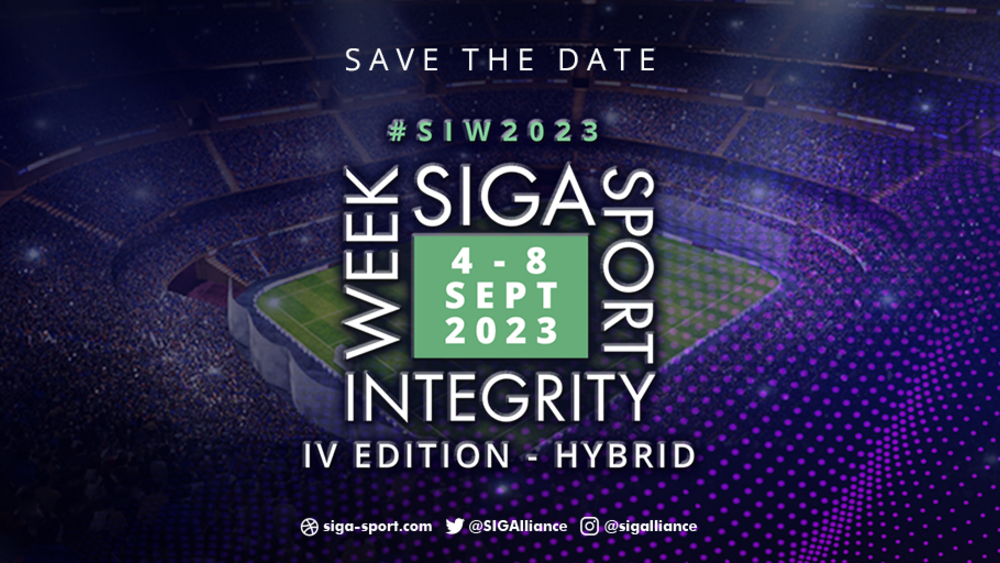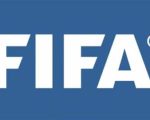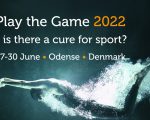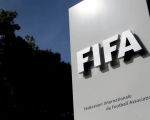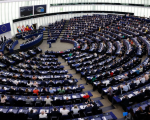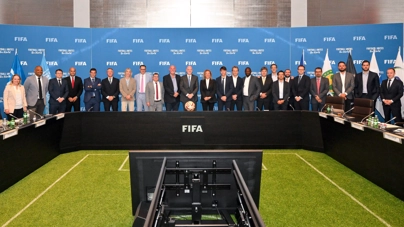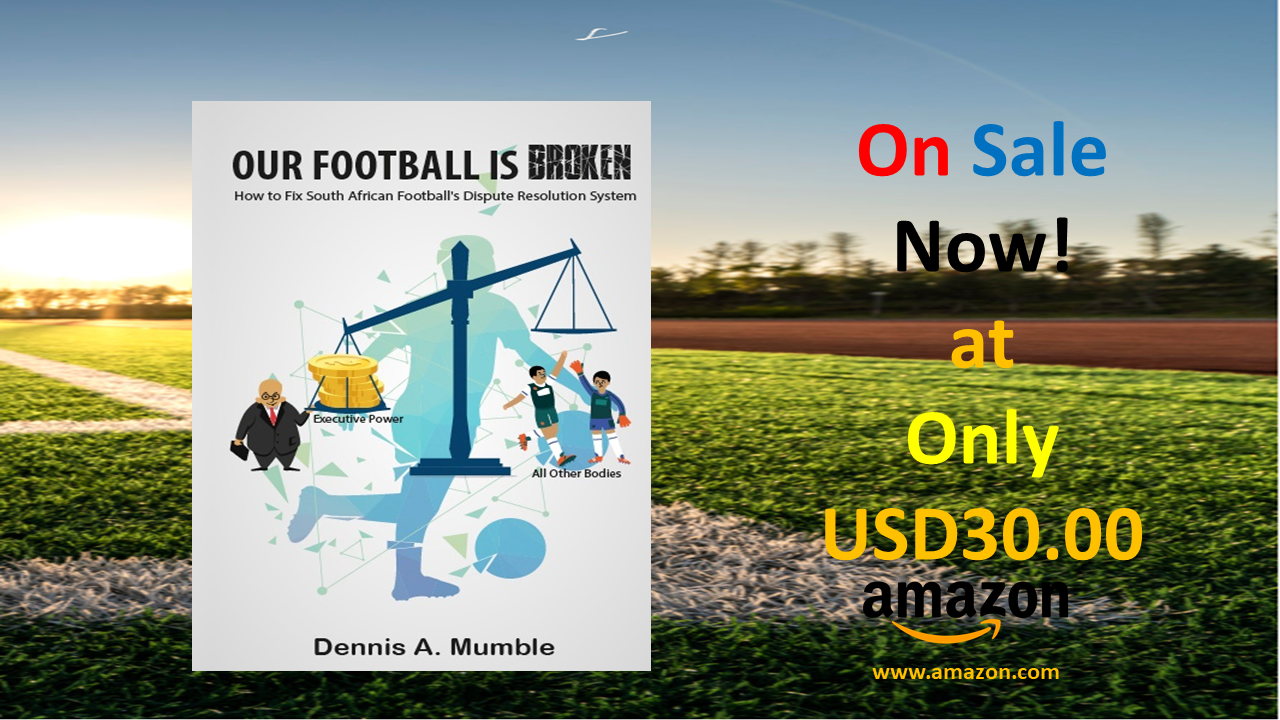



It's Topical
What is Sports Law?
Advice on how a law graduate can start a sports law career (South Africa)
Sports Law in 5 Minutes – the Court of Arbitration for Sport (CAS)


Read our occasional opinion column focusing on the governance of football in South Africa, exclusively in City Press – City Press subscription required


Read our occasional opinion column focusing on the governance of football in South Africa, exclusively in City Press – City Press subscription required
OPINION | The deprived state of SA football and the governance problem facing the domestic game – by Dennis Mumble – 22 Oct 2023
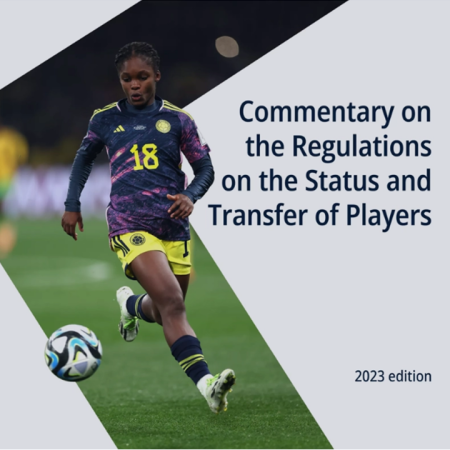
FIFA publishes third edition of Commentary on the Regulations on the Status and Transfer of Players
The Commentary is a crucial document that supports member associations, clubs, players, leagues, coaches and football legal experts in ensuring that the RSTP are applied consistently across the global football community.

Caster Semenya's victory at the ECHR: A landmark case for athletes' human rights - LawInSport
On 11 July 2023, the European Court of Human Rights (“ECHR”) found that the Court of Arbitration for Sport (“CAS”) and the Swiss Federal Tribunal had violated South African middle-distance track star, Caster Semenya’s human rights in their handling of Semenya’s appeal against the World Athletics Eligibility Regulations for the Female Classification

Football Legal Aid Fund: A Step Towards Access to Justice for Players, Clubs & Agents
FIFA and the International Council of Arbitration for Sport (“ICAS”) earlier in the year announced the establishment of a legal aid fund specifically available for parties to football-related disputes before the Court of Arbitration for Sport (“CAS”) in the form of the Football Legal Aid Fund - LawInSport 26 Sep '23
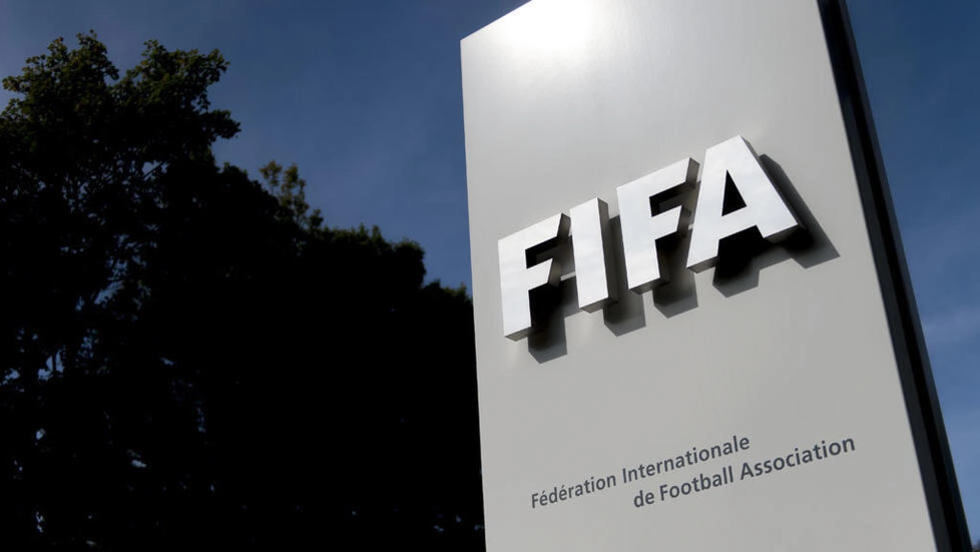
Learn more about the FIFA Integrity Program
The main principles of FIFA’s integrity initiative are the promotion of integrity and the protection of football matches and competitions. This means promoting integrity internally and to the public at all times, as well as protecting football matches and competitions against match manipulation as far as possible and under all circumstances. www. fifa.com
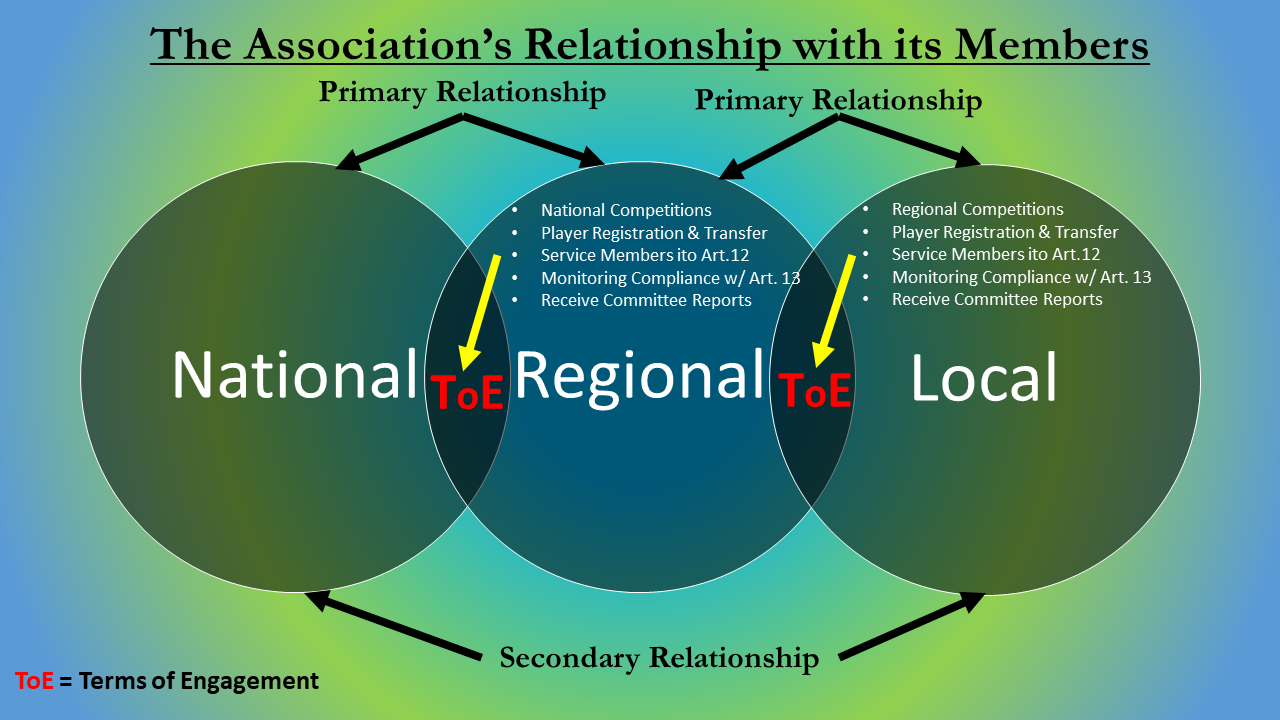
Understanding the Relationship Between the FA and Its Members
There is a general misconception about the nature of the relationship between the national body and its affiliates. Each is governed by its own statutes, but there is a sense that the constitutions of affiliates can simply be overridden on a whim by the national body, which is untrue. Read the chapter to learn why this is incorrect.
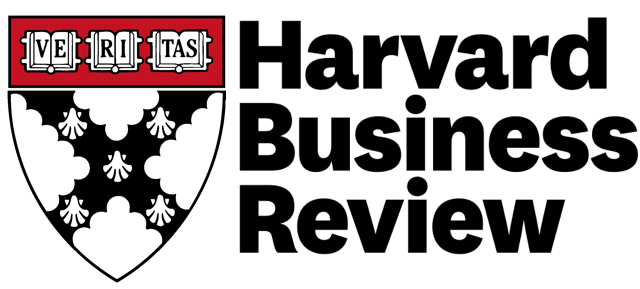
Why Hierarchies Thrive
Of course, hierarchies are terribly flawed. They inevitably foster authoritarianism and its destructive offspring: distrust, dishonesty, territoriality, toadying, and fear. Our ability to work effectively in hierarchies depends in large measure on how we deal with those dangers." -By Harold J. Leavitt -Harvard Business Review -March 2003
A Free Ad for LeoIsaac Courses
On Governance in Sport
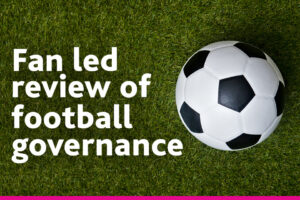
Featured Articles
Inclusion Needs Good Leadership
Whereas the concept of “good governance” has a long history in politics, government policies and anti-corruption activism, “inclusive governance is a more recent adoption in political and international development. Dr Andre Mboule in Good Governance Africa – April 2, 2023
Watch transparency in action as COSAFA broadcasts its entire AGM live. Click here to watch the full proceedings of the 2023 COSAFA AGM
FIFA and WHO extend Memorandum of Understanding for four more years
WHO Director-General Dr Tedros Adhanom Ghebreyesus and FIFA President Gianni Infantino sign new agreement in Geneva, Switzerland
Follow Day 1 of the proceedings by clicking here
Follow Day 2 of the proceedings by clicking here
CAS once again confirmed that:
1. In order to impose a sanction to a direct or indirect member, the relevant body of a sport Federation which imposed said sanction must have an attributed competence to do so.
2. A decision that has been characterized as a “punishment” or a “penalty” must be qualified as a disciplinary measure.
3. For a sanction to be imposed, a sports regulation must prescribe the misconduct with which the subject is charged, i.e., nulla poena sine lege (principle of legality), and the rule must be clear and precise, i.e., nulla poene sine lege clara (principle of predictability).
UEFA’s latest benchmarking report found 180 clubs worldwide with around 6,500 players under contract in 2022, but Play the Game’s more recent research identified 256 clubs with shareholders or owners with significant stakes or influence in other clubs.
Using the same metric as UEFA, the number of clubs identified by Play the Game suggests more than 9,000 players are under contract at clubs in MCOs. Some of these clubs will also have relationships with academies that tie in players, so that figure is probably substantially larger.
On 30 March 2023 the Premier League announced various changes to its Owners and Directors Test (“OADT”) which significantly expand its ambit.[1] The redraft of the OADT was published on 6 April 2023 and became effective immediately. The OADT is set out in Section F of the Premier League Handbook.[2] It applies to anyone who becomes an owner of a Premier League club (i.e. someone who obtains control of a club) and anyone who becomes a director of a club. The test applies upon the control or appointment event occurring but is also an ongoing test.
The test principally sets out a list of circumstances in which a person is disqualified from being an Owner or Director of a football club.
By Nick Said – 8 May 2023
That South Africa has just a single player featuring in Europe’s top five leagues is a telling indictment of the country’s football, which has seemingly been left behind by the rest of the world.
ForbesAfrica.com
Since 2011, Play the Game has worked with leading academic experts and actors in sport to develop tools to benchmark and develop good governance practices in sports organisations at all levels.
Click here to read the full article …
On this theme page, you can find
an introduction to Play the Game’s approach to benchmarking sports governance
an overview of Play the Game’s governance projects in historical order
link to our theme page about how you can do your own governance benchmarking of international and national sports organisations
links to all publications from our governance projects
Play the Game has launched two online tools that allow anyone to benchmark an international sports federation or national sports organisation following the principles of our governance observer tools. Click here to download the tool.
On this theme page you will find information about and links to the two tools
The Sport Governance Observer tool (SGO tool)
The National Sports Governance Observer tool
(NSGO tool)
I. Human rights in sport regulations
II. Selected CAS cases related to human rights issues
III. Sport and the European Convention on Human Rights (ECHR)
IV. SFT judgements dealing with the application of human rights in CAS matters
V. List of CAS arbitrators with specific expertise in human rights
VI. List of topics related to Human Rights in sport discussed at past CAS seminars
More Governance Resources

Learn About the Independent Football Ombudsman in the UK
The office of the Independent Football Ombudsman (IFO) was created in July 2008 by the English Football Authorities (the Football Association, the Premier League and The English Football League) with the agreement of Government. The IFO was established by the football authorities to receive and adjudicate on complaints which have failed to be resolved by football clubs or the football authorities. Furthermore, if the football bodies have dealt with a complaint in full, then the IFO can review whether due process was followed and the complaint handled properly. In these circumstances the IFO does not offer an alternative interpretation of rulings, but an examination of whether a complaint has been handled appropriately.
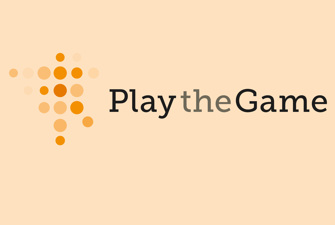
Must Read: The National Sports Governance Observer
Play the Game is an initiative promoting democracy, transparency, and freedom of expression in world sport. They publish the National Sports Governance Observer (NSGO) containing 274 good governance indicators in 4 categories (transparency, democracy, internal accountability and control, societal responsibility), a period study of the state of governance in sport in more than 50 countries around the world. Some of its projects include assessing power relations in international sport, strengthening athlete power in sport, alternative voting systems, action for good governance in international sports organisations, the financing of grassroots sport in Europe, etc.

Ethical living is an art form, one that requires careful consideration of the complexities of human morality and the courage to live a virtuous life.
Those who abuse power often do so to satisfy their egotistical desires or to compensate for their feelings of inadequacy. They use their status to exploit vulnerable individuals, to suppress dissent, or to advance their interests at the expense of others. The outcome is a culture of fear, inequality, and injustice.
Dennis A. Mumble – Former SAFA CEO
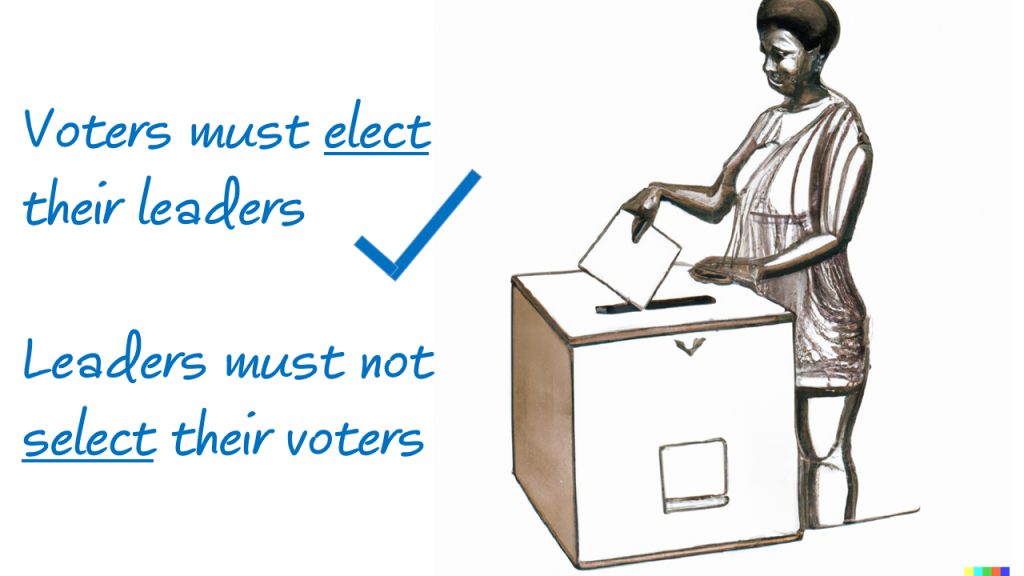
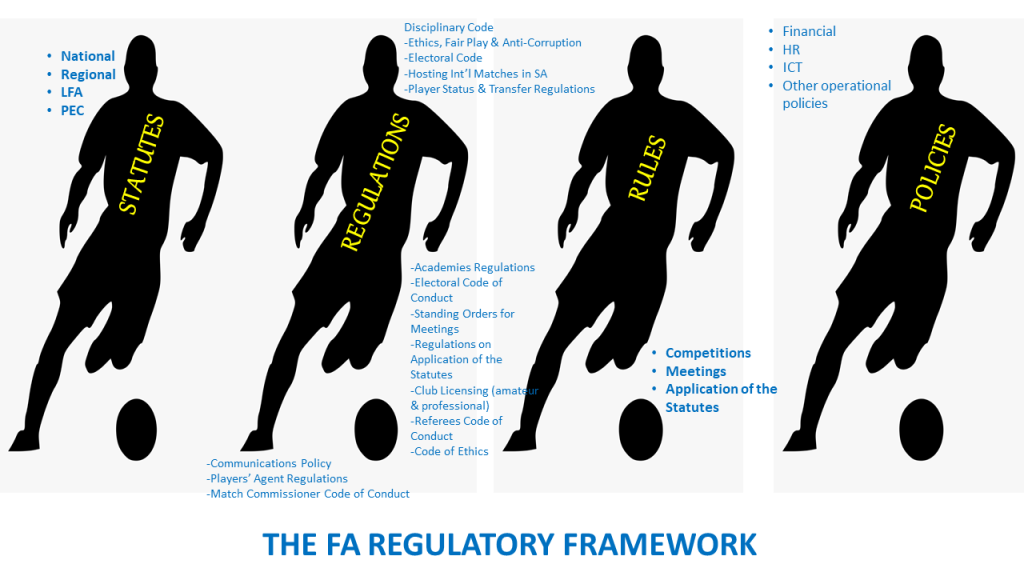
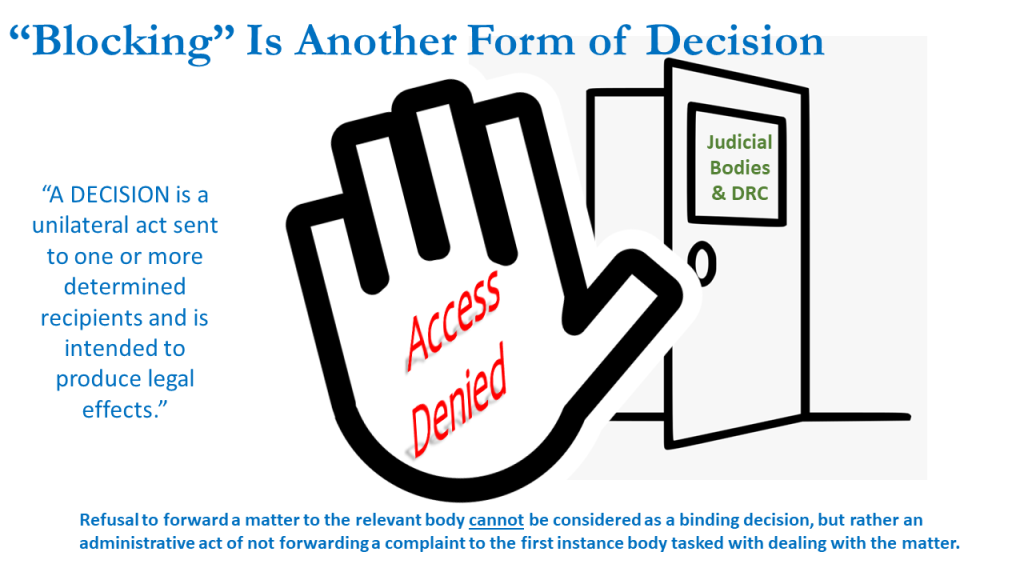
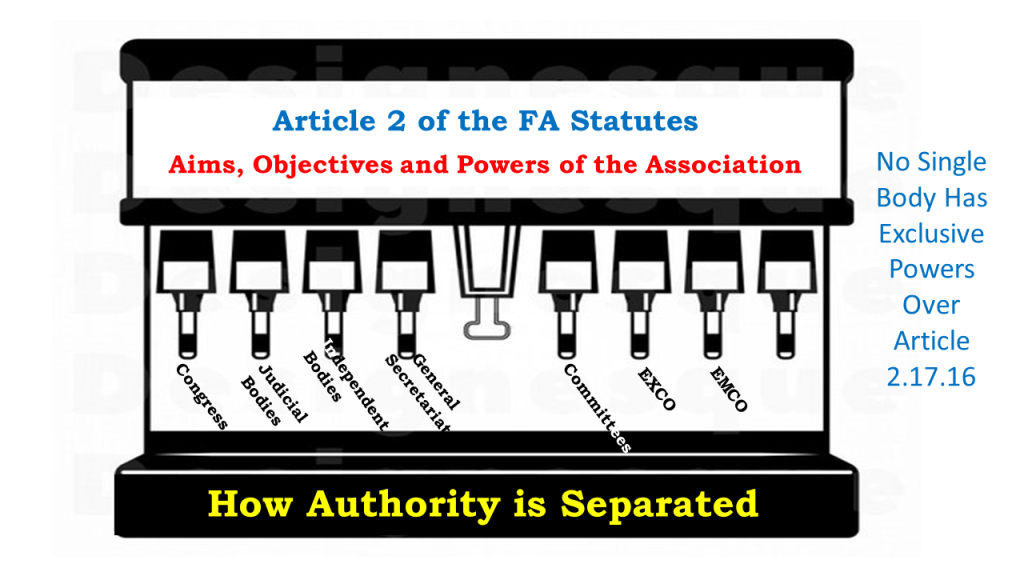
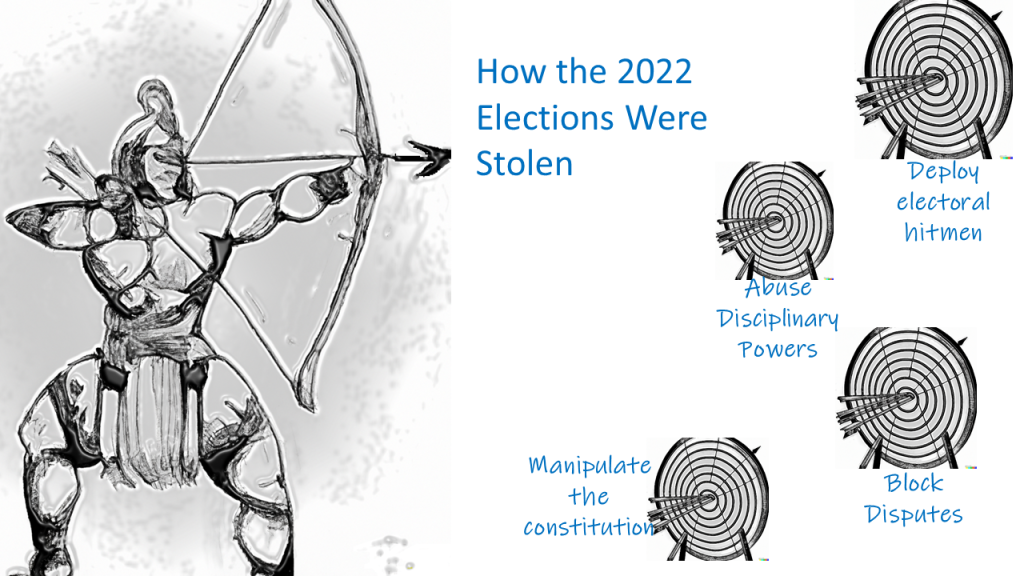
This site promotes better governance in sport
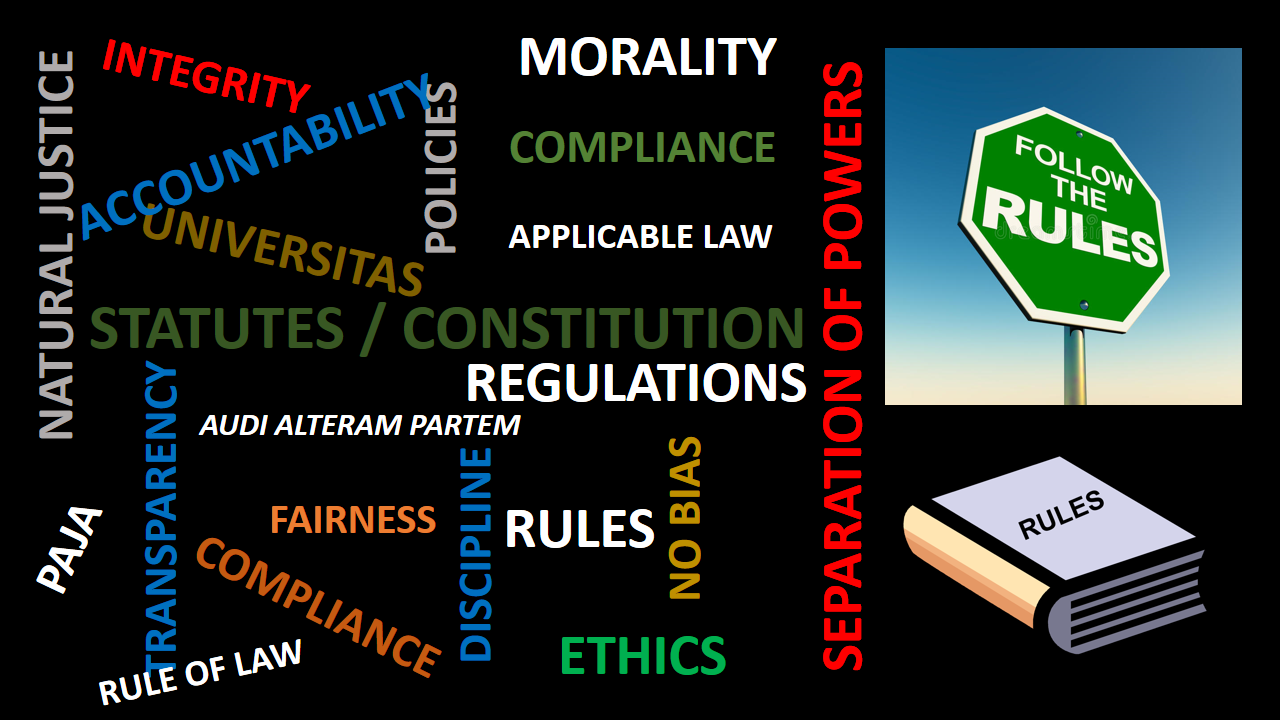
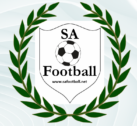
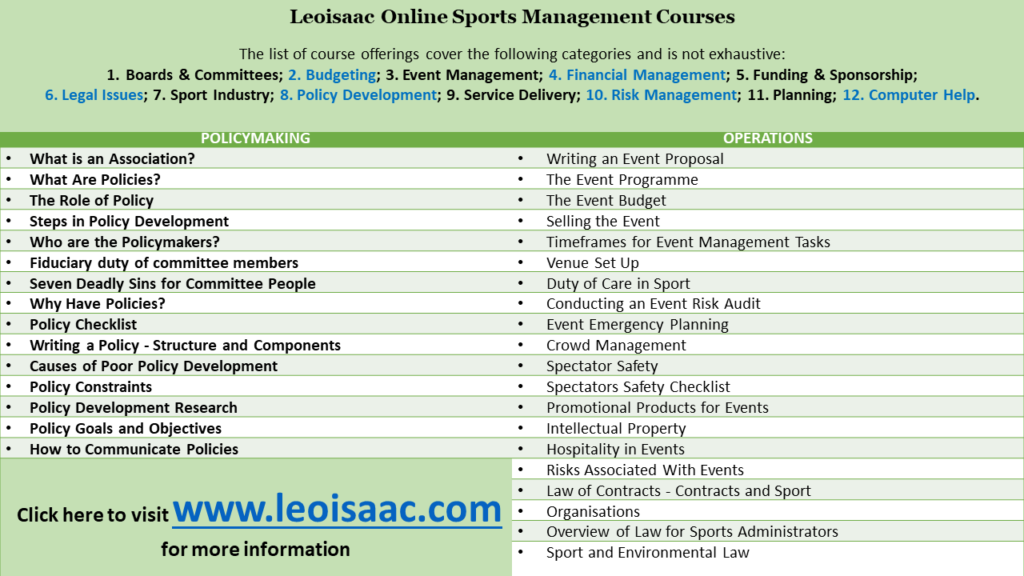
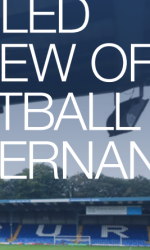
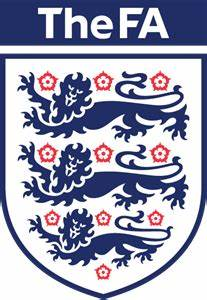
 Government Response to the Fan-Led Review of Football Governance in England. The government’s response to the 10 strategic recommendations made by the Review.
Government Response to the Fan-Led Review of Football Governance in England. The government’s response to the 10 strategic recommendations made by the Review. 
